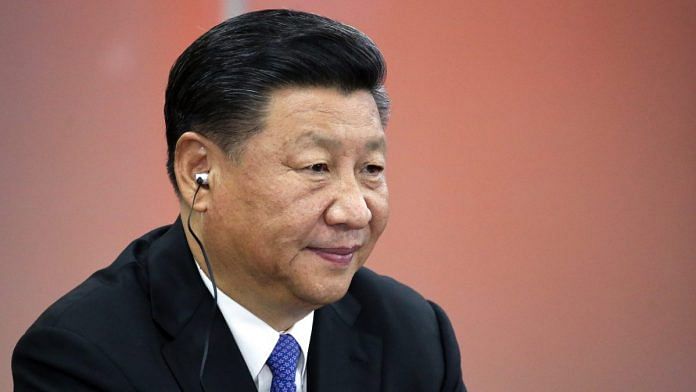Chinese bureaucrats are working seven days a week, particularly when their bosses serve on one of the dozen panels that Xi sits on.
A relentless crackdown on corruption that has swept Chinese officialdom over the past five years has been one of the defining campaigns of president Xi Jinping.
Around the same time, the number of Chinese officials committing suicide has gone up exponentially too.
When Xi took over as Communist Party of China (CPC) general secretary in November 2012, he flagged corruption as the biggest threat to the CPC’s future. In October last year – at the five-year mark of Xi’s rule – the crackdown reached a landmark: the Central Commission for Discipline Inspection (CCDI) said more than one million Chinese officials had been punished for various violations.
There has still been some scepticism from outside observers on whether the crackdown has, indeed, lessened the scale of corruption, with the suggestion that it was merely aimed at eliminating Xi’s political rivals. To be sure, some of Xi’s political challengers have been among those purged.
Also read: China is buying good press across the world, one paid journalist at a time
But is the crackdown only about politics?
Evidence suggests otherwise. Recently, a Beijing bureaucrat put it to me this way: before Xi took over, officials worked five days a week (at most), banqueting (usually with a free flow of expensive liquor) was rife, and local officials were given a free rein to do deals with businessmen (usually lining their pockets).
All that has changed. Inspectors of the once-toothless CCDI – now expanded into a more powerful National Supervisory Commission – are watching over officials like hawks. Bureaucrats in many ministries are working seven days a week, particularly when their bosses serve on one of the dozen or so committees that Xi sits on. Gone is the banqueting – four dishes and one soup is the norm – and liquor is banned.
In recent months, one rather morbid indicator of the pressure corrupt officials have come under has been a spurt in the number of Chinese officials taking their own lives.
As I reported earlier this year, between 2012 and 2017 – the first term of Xi as general secretary of the party – more than 150 Chinese officials were estimated to have committed suicide, according to official figures. This is perhaps the biggest spate of suicides of party officials since Mao Zedong’s Cultural Revolution (1966-76).
Since 2009, at least 243 officials have killed themselves, according to a study conducted by the official Chinese Academy of Social Sciences (CASS), and 85 of those were in the four years before Xi’s ascension in late 2012, or around 21 per year. In the four years since, during which a mass corruption campaign dominated Chinese politics and purged thousands of officials, that number doubled. In this time, 158 suicides were recorded, or 39 a year.
Also read: Xi Jinping could be a bigger risk to China than Donald Trump
This trend has shown no signs of slowing. This month alone, the South China Morning Post reported, at least six local officials were reported to have taken their own lives, including an official in charge of social security in northeastern Liaoning (who jumped to death from his office), an official in charge of finance in Shifang of Sichuan, and a deputy mayor of Hohhot, in Inner Mongolia. The latter two hanged themselves in their offices.
Maya Wang, a researcher at Human Rights Watch in Hong Kong, told me that “many of those who kill themselves are under some form of investigation, and one reason, people speculate, is that if they take their own lives, the investigations stop” and they can thus protect their associates, families and assets.
But has Xi truly cleaned up the system? Wang correctly points out that the problem is systemic – and a result of a lack of transparency and the rule of law in a one-party ruled state – but the crackdown has appeared to have some effect.
Also read: China has become touchy, said this 2009 incident
But at the very least, my sense in Beijing was that it has changed public perceptions, so far widespread, about corrupt officials. As the South China Morning Post reported, it also hasn’t dampened enthusiasm for government jobs, with more than 1.2 million people sitting for the annual civil servants exam last month for 14,500 posts.
“The average ratio of applicants to openings was about 85:1 this year, up from 58:1 per cent last year,” the paper said, although the job profile has changed for civil servants, who were widely known in China for merely spending their days “having a cup of tea, a smoke, and a copy of a newspaper to muddle through the whole day”.
The writer is a Visiting Fellow at Brookings India, and was until September the correspondent in Beijing for India Today.




One million public servants proceeded against for corruption is a very large number, by any standards. Apart from acting against them legally, the government could also analyse the agencies / departments where graft is most prevalent and make systemic changes to reduce the scope and possibilities for wrongdoing. Fiscal situation permitting, it could also pay its employees better.